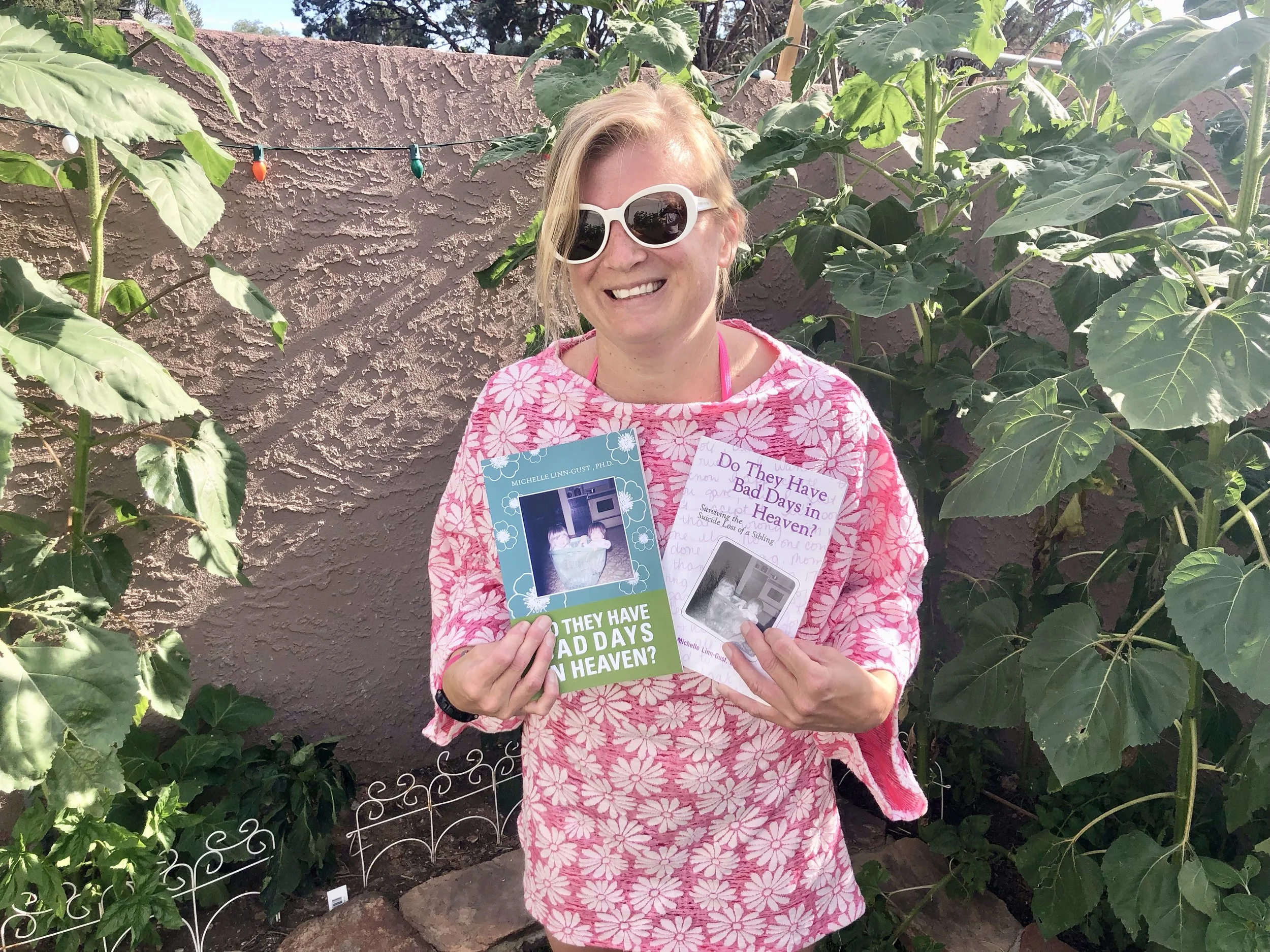I always knew I would write books. It was my dream from the time I was six years old. I just never dreamed my first book would be about not just surviving, but finding hope and thriving again, after my younger sister Denise’s suicide.
As I’m coming up the 30th anniversary of her death at the end of this week, the muscle memory is taking me back to the days leading up to her death (mostly memories of the NCAA Tournament, where I was when she died) and what would become memories of a different life, a life when she was still alive.
The book didn’t come right away after death. Honestly, it shouldn’t for anyone. We should be consumed with coping with the loss, finding our way through grief, and weaving it all together into what is a changed life. While Mom had said in days after Denise’s death that we should share her story, that maybe we could help someone else, it was several years before I understood what my sharing would be.
I had to travel a grief road I didn’t understand, especially as a 21-year-old college junior who just wanted to be writer. My path changed and I thought writing had slipped off my plate when I decided to become a high school teacher and coach.
But the writing never left me and I understand now that it was because I had to experience enough of my grief, of the reweaving, so I would have a story to tell.
I read as much as I could about suicide and grief. There was no internet as we know it (and no social media) in those days so my connections to other siblings survivors were mostly confined to my own brother and sister. I read about sibling loss, seeing how often it was downplayed even though they are the longest relationships we have in our lives.
The reading and research didn’t seem to end. There was so much to not just include, but to digest and find a way to use it to help others like me. The publishers weren’t interested; all the talking we do about so many things now didn’t exist twenty-some years ago.
But Jack Bolton understood. It was his wife Iris’s book that they had published when they couldn’t find a publisher about the death of their son Mitch. And that’s how Do They Have Bad Days in Heaven? Surviving the Suicide Loss of a Sibling became a book in July 2001.
There is much more I could say– it’s almost like what came after the book is a book, a journey, in itself. I sent order forms to support groups all around the country (I don’t think we were able to have direct ordering on the web site at that time although there was a web site that at least offered information and a message board).
Slowly, I began telling my story not just in Albuquerque as I had been while I was writing the book, but around the country. And then around the world. I earned a doctorate; I wrote more books on suicide grief. I began to expand into how the family as a unit grieved.
And I experienced more losses in my own life– my dad in 2005, a divorce (following my first husband’s head injury from a drunk driver in 2003) in 2011, and the death of my mom in 2014.
My sibling grief journey evolved, the book was updated to reflect that in 2021, and I now stand in a different place. It’s not about how Denise died thirty years later. It’s about the short time we shared together, the colors and prints of our childhood, of sharing those in unique ways as Chelle Summer.
It’s about finding hope even when everything seems dark as it did for her.

